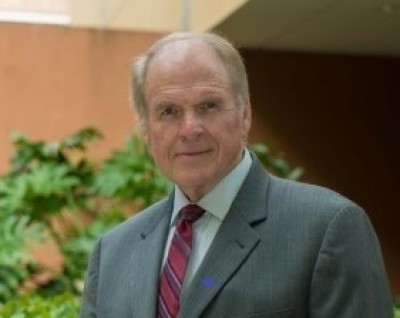Church may ditch ‘husband’ and ‘wife’
The Church of Scotland’s General Assembly will soon consider a proposal to erase “husband” and “wife” from its official marriage ceremony.[1]
Changing worldview and their inherent values are gradually bringing about a slow but accelerating fade of marriage as described in the Bible.

It’s not just the homosexual movement impacting the view of marriage, but the wide acceptance of pre- and non-marital sex even among purported Christians. In a 2020 survey, Pew Research found that forty-six percent—nearly half—of Evangelical Americans see no problem with sex outside of marriage, despite Bible teachings.
As a minister ordained in 1962, I can look back over the years and attest to the fact that the number of weddings I was asked to perform shrunk significantly.
Biblical instructions have faded into the searing flashes of one-night stands, common-law marriage, and casual couplings.
In addition, given the homosexual movement, “husband” and “wife” are awkward terms.
What civil governments do with marriage is public business, subject to the voters, However, civil government has no constitutional authority to order a church or a denomination of churches to alter their doctrines of marriage and sexual relationships.
Too often, however, governments do not have to give such mandates because there are churches who will bow to contemporary political correctness on their own, in the name of relevance.
Sadly, they are like ships who’ve lost their moorings in stormy seas, carried about by “every wind” of social change and tsunamis of politically correctness.
The Church of Scotland’s native land gave the world sturdy Christians like Saint Columba, John Knox, the Covenanters, Patrick Hamilton, David Livingston, Thomas Chalmers, Robert Murray McCheyne, Samuel Rutherford, Eric Liddell, and many other stalwarts of faith. Some suffered martyrdom rather than compromise.
One can only imagine how they would be responding now to churches even considering approval of culturally contrived ideas that amount to the destruction of the family as revealed in Scripture.
I speak of marriage with some knowledge and experience since my wife and I will celebrate our sixtieth anniversary this year. Further, in decades as a pastor I have “been to the altar” more times than I can count—performing weddings, of course. I have spent hours upon hours counseling couples trying to heal marriages sickened by the social viruses loosed at pandemic levels in our culture.
Both as a husband and pastor I have learned some vital things about the style and contributions of healthy marriages to society:
- A healthy marriage is a “whole” marriage.
Though sex is a wonderful and sacred aspect of marriage, there is much more than a linkage of two bodies. A whole marriage also joins the souls of two people so there is a harmonization of their minds, emotions, and wills. Even more important is the union of spirit in which they share a strong faith and know how to cover each other and their family in prayer. Thus, a whole marriage is a “three-thirds” marriage—the intimate union of spirit, soul, and body.
- A healthy marriage is a well-balanced marriage.
The home must rest on a careful balance between transcendence and immanence—authority and approachability. In the Bible design the husband-father is to have the primary accountability for transcendence and the wife-mother that of immanence. In a healthy marriage both will share in ministering those roles, which are interchangeable in certain situations.
Historian Elizabeth Fox-Genovese of Emory University, in her book, Marriage: The Dream That Refuses to Die (Intercollegiate Studies Institute, 2008), explored how the mother and father were to share the nurturing role, with the goal of character formation.
Mary Eberstadt also wrote especially of the need for the man to fill his role: “Absent fathers predict higher rates of truancy, psychiatric problems, criminality, promiscuity, drug use, domestic violence, and other less-than-optimal outcomes,” she wrote.[2]
- A healthy marriage is a discerning and encouraging marriage.
The partners discern the spiritual gifts God has granted one another, and affirm one another, encouraging each other in the use of those gifts.
The equilibrium of a healthy, whole marriage stabilizes the home in a fallen world where the primary conflict is between cosmos (harmonic order) and chaos.
When Frenchman Alexis de Tocqueville came to young America to try to understand its democracy, memories of the French Revolution and its descent into madness were fresh in his mind. He wanted to comprehend the relative stability in America, and the worldview that produced it.
In his study, Democracy in America, de Tocqueville believed the roots of the young nation’s uniqueness were in the home, where “the functions of man and woman” were arranged “so that the great work of society may be better performed.”
Almost two hundred years later, journalist William Tucker explored the same issues. This time, however, he was analyzing the marriage crisis brought on by shifting values and the availability of divorce. His book title revealed his premise—Marriage and Civilization: How Monogamy Made Us Human (Regnery, February 3, 2014).
One hopes the good folk of the Church of Scotland will see that there is much more at stake here than just a change of nomenclature. It goes straight to the authority of Scripture and the health of society.
The secular civil powers will do as they will, but don’t let the church be dragged along the path like a cow with a nose-ring and chain being pulled along by the slaughterers.
[1] ‘Husband and wife’ ditched in Kirk's marriage proposal - The Christian Institute
[2] The Toxic Tragedy Of The Fatherless In American Civilization - Issues In Perspective
Wallace B. Henley’s fifty-year career has spanned newspaper journalism, government in both White House and Congress, the church, and academia. He is author or co-author of more than 20 books. He is a teaching pastor at Grace Church, the Woodlands, Texas.
For media inquiries, contact: ChristianPost@pinkston.co




























